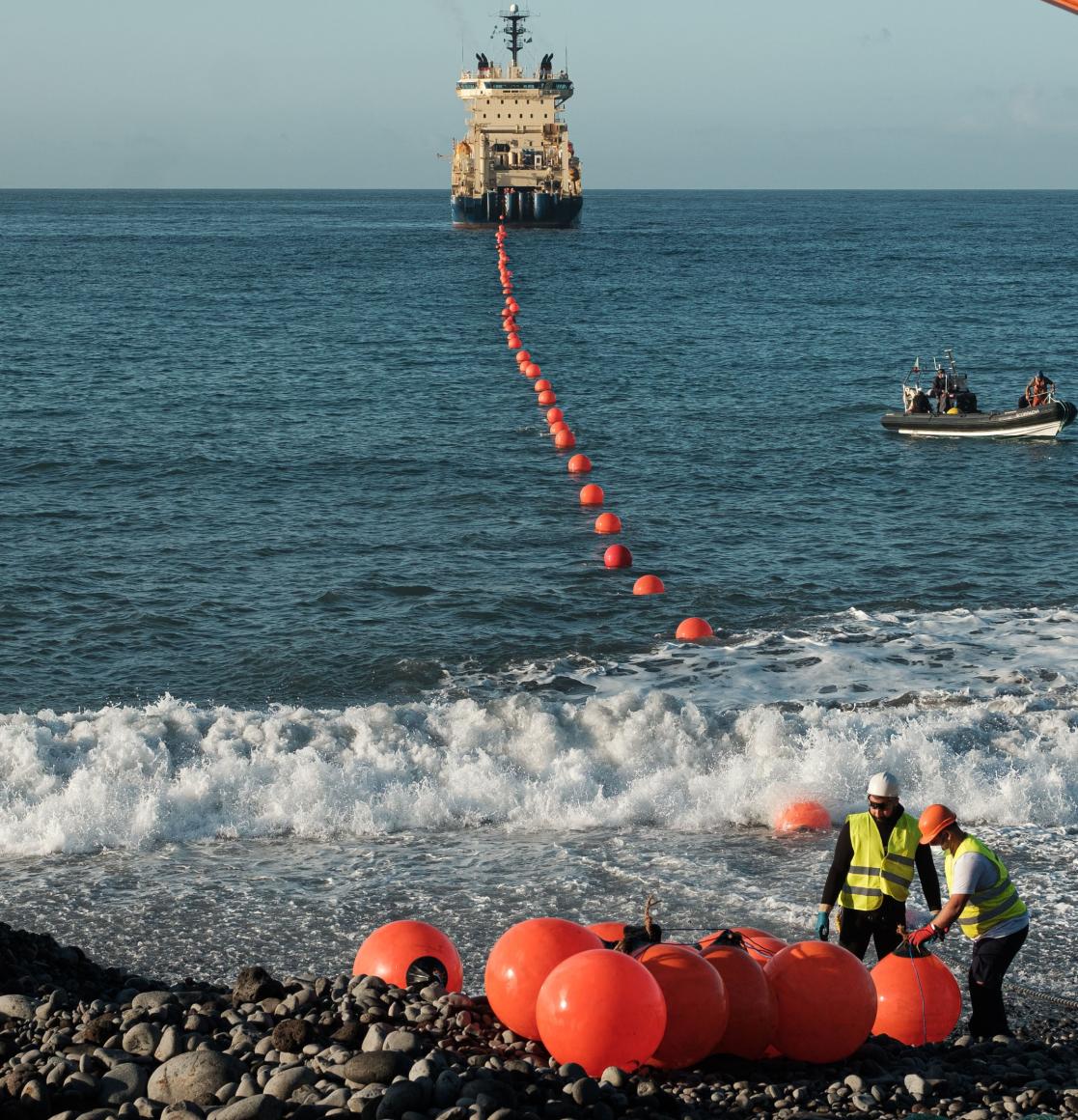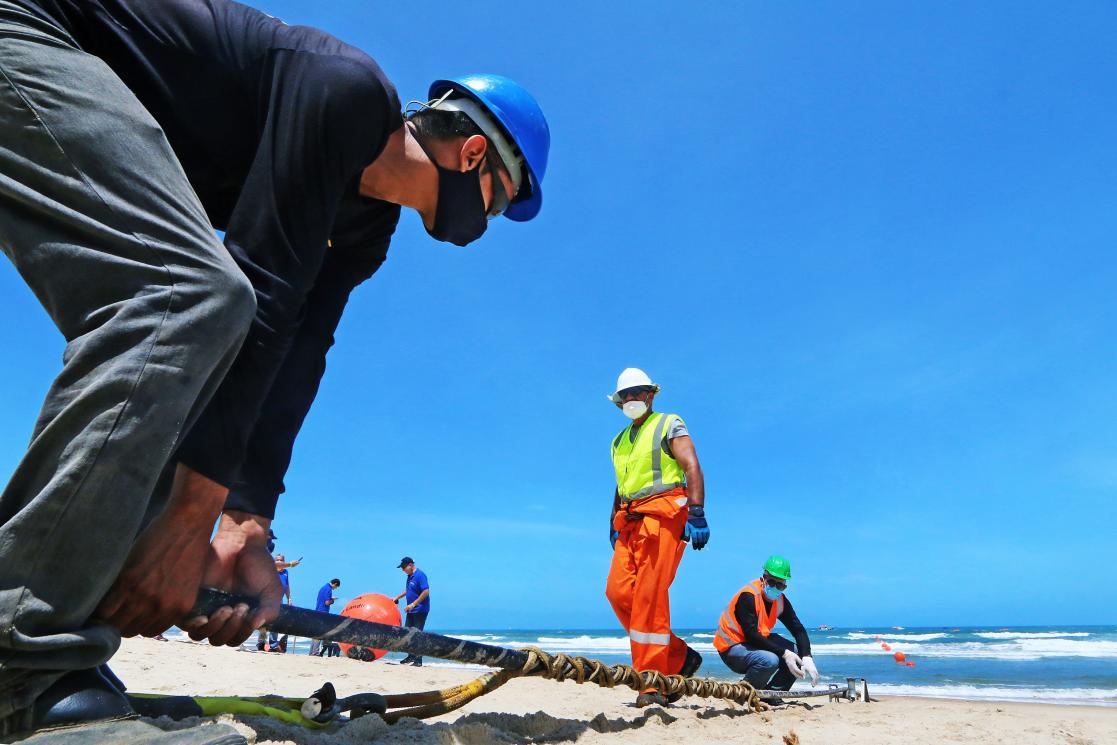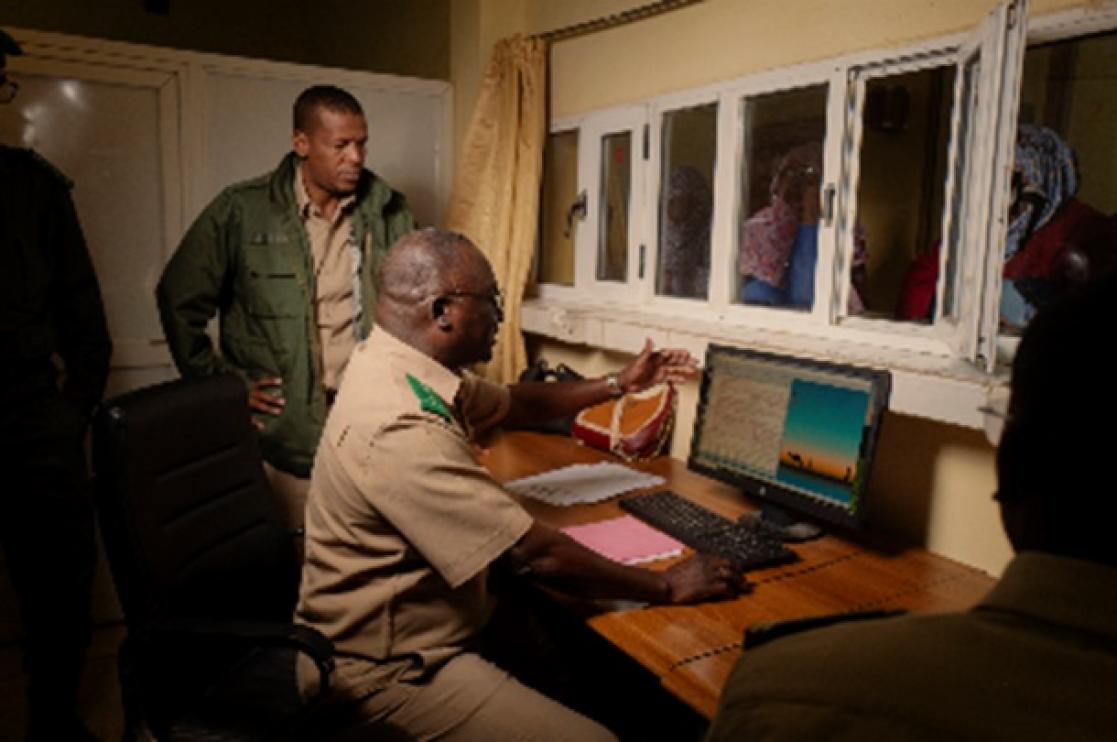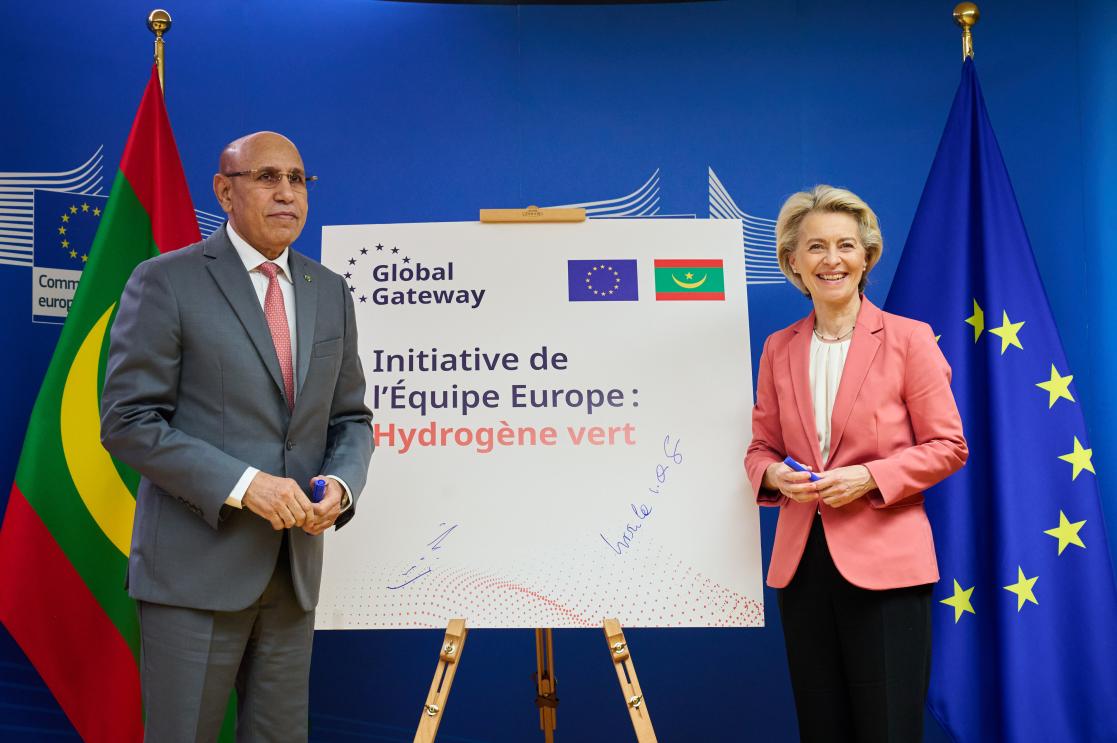Global Gateway in Mauritania
The Global Gateway strategy is implemented through a Team Europe approach that brings together the European Union, its Member States and their financial and development institutions to mobilise the private sector to boost investments that can deliver transformative effects.
Between 2021 and 2027, Global Gateway aims to mobilise up to €300 billion in investments, focusing on high-quality infrastructure which meets the highest social and environmental standards, in line with EU interests and values: rule of law, human rights and international norms.
This strategy enables European partners to build resilient and sustainable societies and economies, while also to offering the private sector in EU Member States the opportunity to invest and remain competitive, taking into account the needs of partner countries and ensuring lasting benefits for local communities.
More information is available on the Global Gateway website
The Global Gateway offer in Mauritania
In Mauritania, the European Union’s offer revolves around three major strategic priorities of common interest:
-
Strengthening human development:
-
Health: Universal access to healthcare, improved access to medicines, maternal health, and digitalisation of health services.
-
Education: Support to the national education system to improve access and quality of teaching, with a focus on access to primary school textbooks.
-
Vocational training: Promotion of vocational training for youth employment, and improvement of the quality of services offered by training centres.
-
-
Transition to a green and blue economy:
-
Energy: Transition towards universal access to clean and renewable energy.
-
Sustainable food systems: Promotion of the circular economy to ensure quality and affordable food for the population.
-
Ocean, environment and climate: Protection of biodiversity, fragile marine ecosystems, and improved governance of the ocean and coastline, while developing sustainable exploitation of fisheries resources and related value chains.
-
-
Governance and stability:
-
Justice and human rights: Strengthening of the judicial system and combating human trafficking, with a view to supporting orderly migration management, as essential elements for the country’s stability.
-
Business climate: Improvement of the legal and fiscal framework, and of economic and financial transparency, in order to facilitate national and foreign investments in a safe and reliable environment, particularly in key sectors such as green hydrogen and the blue economy.
-
Youth and civil society: Support to local initiatives, particularly those led by young people and women, which are essential for inclusive public policies benefiting the population.
-
Flagship Global Gateway initiatives in Mauritania:
For the period 2021-2027, the EU, its Member States and the European Investment Bank, as Team Europe, are collectively working on a set of flagship initiatives of the “Global Gateway” strategy in Mauritania, notably:
Data Center: The construction of a data center in Nouakchott aims to strengthen the country’s digital sovereignty, host national data locally and improve the security of data exchanges. From the commissioning of the infrastructure planned for 2025, this will boost the development of the digital economy in the country, contributing to the diversification of the Mauritanian economy and job creation. This project is jointly carried out by the European Union and the European Investment Bank.

Union européenne/Michele Cattani/2025

Union européenne en Mauritanie/Michele Cattani/2025
Submarine cable: The installation of a second high-speed submarine internet cable will secure and increase data transmission capacity. This infrastructure, to be commissioned in 2026, will reinforce the existing single cable and provide more resilient international connectivity for Mauritania and also for neighbouring landlocked countries. This project is jointly carried out by the European Union and the European Investment Bank.

DUE Mauritanie

DUE Mauritanie
High Voltage Line: The construction of a high-voltage electricity interconnection line will connect Nouakchott to Nema in Mauritania and Kayes in Mali. The European Union, the European Investment Bank and the AfD are financing the section between Nouakchott and Kiffa. This power line will improve access to high-quality, low-carbon and affordable electricity for Mauritanian citizens. It will enable the development of industrial processing activities, particularly of agricultural products, support job creation and open the regional market to green electricity produced in Mauritania. Construction is scheduled to begin in 2026.
Integrated Development Hub – Blue Economy: The construction of a dedicated landing site for artisanal canoe fishing on the southern coast of Mauritania will develop the value chain of fish products, while contributing to the country’s food security and sovereignty. Planned facilities include a multi-service land infrastructure for fishers, a landing platform, a slipway and a canoe garage station. The project is supported by the European Union: construction is scheduled for 2026 with delivery in 2027.

UE MAURITANIE
Other major initiatives also contribute to the implementation of the Global Gateway strategy in Mauritania, notably:
Rosso Bridge: The construction of this bridge will link both banks of the Senegal River. This infrastructure will facilitate transport, increase trade, reduce travel time and lower transport costs. It contributes to the trans-African corridors Tangier-Lagos and Algiers-Dakar, with a view to consolidating South-South integration between West Africa and the Maghreb. Commissioning of the bridge is scheduled for 2025. The project is supported by the European Union and the European Investment Bank.

UE Mauritanie

DUERIM
Digitalisation: Support for the development of digital solutions by the public administration in favour of the population allows the expansion of e-services. In the health sector for example, this intervention enables better monitoring of patient records and overall medical care. This initiative also increases transparency in tax services and improves overall governance.

Michele Catani UE

Michele Catani UE
Green Hydrogen: The development of the green hydrogen ecosystem aims to support the accelerated energy transition and the decarbonisation of the Mauritanian economy. The Team Europe initiative “Green Hydrogen Ecosystem”, supported by the European Union, the European Investment Bank, Germany, Spain and France, contributes to this objective by:
-
Supporting the construction of the infrastructure necessary for the development of the green hydrogen ecosystem to enable production, transport and marketing of this energy.
-
Supporting the creation of decent jobs, particularly for women and young people, supporting the private sector and strengthening the entrepreneurial ecosystem including access to finance, in order to structure the sector and ensure lasting benefits for the local economy.
-
Developing skills through technical and vocational training and support for research and development, to ensure the availability of qualified personnel that meet the needs of the hydrogen industry and its associated sub-sectors.
-
Improving the business climate and the legal and fiscal framework to facilitate national and foreign investments in a safe and reliable environment, for example in the field of green steel.
-

Commission européenne
Page updated on 25 March 2025.
More information on the EU International Partnerships website
Contact: delegation-mauritania@eeas.europa.eu
